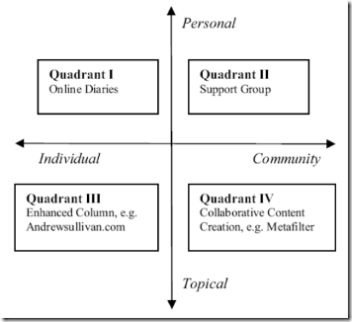
I learned of this movie from The Wily Filipino. Got to say, I wasn’t impressed. I already rented Suicide Girls on his recommendation and found it a bit “wtf?”, although there is a Clockwork Orange-y rape scene in Suicide Girls that is eerily beautiful. One more strike, though, and I’ll just have to say that The Wily Filipino and I have divergent tastes in movies .
CORRECTION: It was actually Suicide Club. Suicide Girls is the porn website where the models all have tattoos and piercings. And no, I’m not a subscriber (sin is a financially taxing endeavour).
The plot of Cavite centres around a 2nd generation Filipino American in the Philippines whose family is being held hostage and who is forced to do all kinds of illegal things by the bad guy who relays all his instructions by cellphone. Yes, just like that one cellphone hostage movie that was out recently which I never plan on seeing. Oh, and he has to do all his running around in the province of Cavite.
I grew up partly in Cavite, but that has nothing to do with my dislike of the film. Rather, it’s clear to me that I’m not the target audience. The movie is obviously set up with 2nd generation Filipinos in mind, since the whole thing is about the anxieties of the 2nd generation in regards to their Filipino identity.
The first thing that didn’t fly with me was the language. I speak Tagalog well enough, and to me, the menacing voice on the phone issuing Tagalog commands didn’t sound menacing at all. In fact, the guy sounded like a complete tool. It was hard to take his threats seriously since he actually has more of a comedian’s voice. I kept expecting cellphone guy to start cracking toilet humour jokes. Not only that, but it seems rather odd to me that Adam, the main character, should understand Tagalog, since his family is supposedly from Mindanao and I would expect him to be more fluent in Chavacano or other more regionally-appropriate languages.
In fact, language is one of the things that 2nd generation Filipinos have an ambivalent relationship with. Obviously, Adam has passive fluency in Tagalog so that the story is able to take place, but he also talks almost entirely in English because he’s “not comfortable with the language [Tagalog]”, just like many 2nd generation Filipinos. Quite a few don’t understand any Filipino languages at all, what with their parents wanting them to assimilate completely. That, or they’re embarrassed by their parents’ languages and make an effort to speak entirely in English.
In this case, the menacing voice on the phone represents the Filipino-ness that 2nd generation Filipinos (the kind that would watch this kind of movie) want but don’t quite feel they’re worthy of. The voice is the inadequacy that 2nd generation Filipinos feel towards being Filipino, that they’re not really authentically Filipino if they can’t speak Tagalog, have never been to the Philippines, can’t eat balut, and all sorts of other things.
In fact, the movie is all about gaining this elusive authentic Filipino character. Cavite begins by forcing Adam to confront the poverty and material deprivation in the Philippines (what could be more authentic than the poor?) and he is then forced to participate in other “authentically” Filipino experiences such as watching a cock fight, drinking soda out of a plastic bag, and eating an unhatched duck egg. In fact, the scene with the balut is significant because watching foreigners recoil at the thought of eating balut is one of the pastimes Filipinos engage in with outsiders. Having eaten the balut, Adam has proven that he is really Filipino. The taunts of the voice on the cellphone are merely the prickings of his guilt at not being Filipino enough.
So this movie is actually about discovering one’s identity, and not just any identity, but ethnic identity. Therefore, it’s about discovering what one always already is, or so the proponents of ethnicity will claim. Still, the journey of ethnic discovery parallels the journey of the tourist in many ways. Both centre on finding the authentic among foreign Others, particularly savage Others (the poor, the non-white, and the non-Western). Second generation travellers might argue that they’re different from tourists, that tourists only see the surface, the superficial, but we have penetrated this wall of inscrutability and have beheld the true faces of the Filipinos. In fact, we have always been Filipino, so there was never a wall there in the first place. But the desire for the authentic still marks both journeys.
The search for authenticity is of course not politically neutral. Second generation Filipinos look to the Philippines as a source of identity because they cannot find it in their home countries. That is, the search for inclusion within the Philippine imaginary is contingent on the exclusion that 2nd generation Filipinos experience in their lives outside the Philippines. Identification is always a political act, and a diasporic imaginary, as James Clifford put it, can be seen as making the best of a bad situation.
Which is all well and good, but the political goals of 2nd generation Filipinos don’t speak to me at all. Cavite didn’t resonate with me because it showed me nothing that I hadn’t already seen before. Rabid dogs on the street? Floating mountains of garbage in the rivers? Squatter children bathing outdoors? Ho hum, how very boring. Adam is shocked, but I sit and wait for the movie to start. By the time it ends, I realize those scenes were the point. And there’s nothing more boring than watching a movie that was made for someone else. I wish I’d just gotten Superman Returns.


